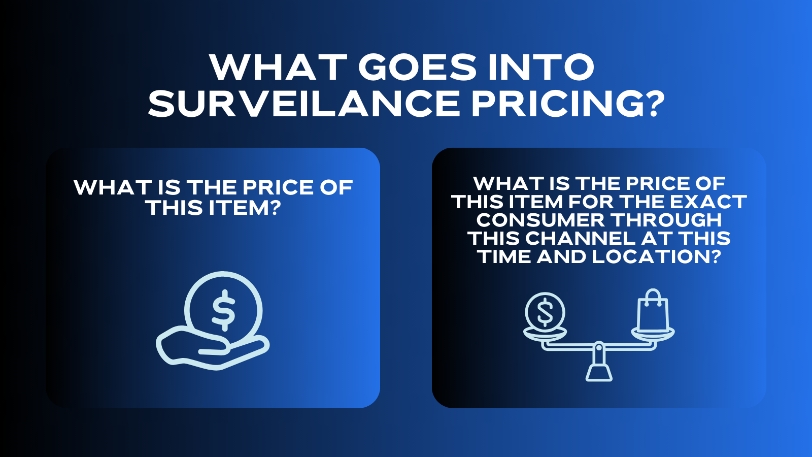Advancing Equitable Tech Policy in California
The Kapor Foundation’s mission is to create a more equitable tech ecosystem that addresses inequality, creates economic opportunity, and tackles critical societal issues impacting the most marginalized. As an organization located in Oakland, California, we have long recognized California’s leadership role in the global technology economy. The tech sector in California produces over $500B in economic output, is the headquarters for several of the largest and most profitable tech companies in the world, and is home to another 50,000+ startups and mid-size tech firms.
California is also home to 32 of the top 50 artificial intelligence (AI) companies, and continues to dominate in venture capital investment, with startups in California securing over 50% of all venture dollars raised in 2024. Yet, not all have benefitted from the technology sector, with Latine and Black workers, and women, being underrepresented within California’s tech sector. The median wage within the tech sector is 171% higher than the median state wage, and income inequality in Silicon Valley is widening twice as fast as the state and national averages, specifically leaving Black and Latino communities behind. Further, as technologies continue to rapidly advance and impact every aspect of our lives and communities, we believe this is a pivotal moment to center equity in the next frontier of technology development for our state, nation, and the globe.
In 2022, the Kapor Foundation launched the Equitable Tech Policy Initiative, outlining nine key areas where we believe policy change is instrumental to advancing opportunity, protecting harms facing marginalized communities, and transforming the technology sector. Through our investments in research, programs, and partner organizations, we aim to raise awareness, educate stakeholders, and encourage informed civic engagement around the issues that impact equity in technology. This document provides an overview of the current legislative landscape in CA and the bills that we are tracking, analyzing, and raising awareness about—aligned to our focus areas across four themes: CS/AI Education, Worker Protections, Algorithmic Accountability, and Equitable Infrastructure.
2025 California Legislative Landscape
California has long played a leadership role in shaping tech-forward, people-first legislation. The “California effect” has helped lead the nation on key policy issues ranging from environmental oversight to data privacy (California Consumer Privacy Act – CCPA), children’s online safety (Age-Appropriate Design Code Act), and now shaping AI governance.
This year, with over 50 bills positioned to further cement California’s leadership in technology, we are focused on raising awareness on specific California state policy bills across issue areas ranging from increasing computer science (CS) education to supporting worker protections that ensure equitable labor practices as more automation reshapes work—and advancing the safer design, development, and deployment of AI technologies.

CS/AI Education
Across the country, 32 states mandate that all high schools provide a CS course, while California continues to lag behind. As of 2024, 11 states have taken this mandate a step further by passing bills that require CS as a graduation requirement. Furthermore, California’s proficiency rates fall below the national average, with the state ranking 38th in math and 33rd in reading. Expanding CS education from K-12 into post-secondary education enables students to develop critical computing competencies and mastery in advanced studies necessary to pursue computing careers and develop a robust future tech workforce.

Expanding Access to K-12 Computer Science Education
AB 887 would require the governing boards of each K-12 school district and charter school to offer at least one CS course in each high school. This bill also focuses on marginalized groups systematically excluded from computing, aiming to address existing equity gaps.
AB 811 extends the timeline for California’s education commission to study and report on credentialing teachers for CS instruction. If passed, this bill would complement AB 887 and ensure that teachers are equipped with the resources to teach CS to K-12 adequately.
To learn more about the current landscape of CS education in California and the policy advocacy efforts to expand CS education statewide, follow our partners at the CSforCA coalition.

Expanding Post-Secondary Computing Career Pathways
To support new approaches to postsecondary education in emerging technologies while also addressing the ever-changing workforce needs, Governor Newsom recently announced the state’s Master Plan for Career Education to “strengthen career pathways, prioritize hands-on learning and real-life skills, and advance educational access and affordability.” Given that advanced CS and applied AI education are becoming more accessible via community college programs, post-secondary co-op opportunities, and project-based learning, there is a growing need for coordinated continued education.
AB 95 creates the California Education Interagency Council, which will develop a plan to improve student career pathways. The Council will report to the Governor, consult faculty and employers for advice, and recommend resources to support students throughout their education.
AB 323 provides paid work-based learning opportunities for students and employers. This bill would authorize community colleges to use funding to help students gain skills and find jobs.
Worker Protections
Surveillance tools and automated decision-making software have become ubiquitous uses of AI technologies in workplaces nationwide. Since the rise of remote work, surveillance practices including using biometric data to track productivity, microchipping employees, and installing geolocation tracking, have surged. Similarly, automated decision systems (ADS) have been widely adopted in the recruiting and hiring processes, often resulting in discriminatory outcomes against marginalized communities and undermining worker protections. Yet, the legality of workplace surveillance and ADS tools remains unclear and underregulated.

Enacting Worker Protections from Discriminatory ADS Practices:
Civil rights organizations are filing lawsuits against big tech employers’ use of algorithms that allegedly have excluded women from traditionally male-dominated jobs as well as discrimination based on race and disability. By enacting policies that require ADS performance evaluations and enhance transparency, California can more effectively protect workers from unfair discrimination practices.
AB 1018 requires ADS developers to conduct performance evaluations and increase product transparency to decrease the likelihood of discrimination. This would protect workers and individuals from being discriminated against by unfair ADS. This bill authorizes the Attorney General, district attorney, county counsel, city attorney, or Labor Commissioner to file a penalty.
Notifying Workers of the Use of ADS Systems:
Notifying workers about the use of ADS in the workplace is pivotal in increasing transparency, accountability, and trust between employers and employees. Only two states, Colorado and Illinois, have enacted laws to regulate employers’ use of artificial intelligence in hiring decisions. California has the opportunity to follow suit, further crafting better transparency frameworks and standards for AI in the workplace.
SB 7 requires employers or vendors to notify all workers who are directly or indirectly affected by an ADS used for employment-related decisions.
SB 238 requires employers to report annually to the Department of Industrial Relations regarding all workplace surveillance tools they use.
Limiting Surveillance Tools in the Workplace:
Workplace surveillance is an increasing concern related to human and civil rights, and the development and deployment of AI surveillance technologies continue to proliferate across workplaces. Worker surveillance especially impacts workers’ ability to unionize. Since 2016, employer surveillance of worker union campaigns has doubled, with employers using electronic surveillance techniques such as employee key cards, ID badges, and GPS location devices. California can enact legislation to curb these tactics affecting union mobilization and organization, further codifying worker protections.
AB 1221 regulates workplace surveillance tools and employers’ use of worker data and prohibits employers from selling worker data to a third-party vendor.
AB 1331 limits invasive workplace surveillance by banning emotion, gait, and facial recognition technologies and prohibiting surveillance in workers’ private spaces and during off-duty hours.
Algorithmic Accountability
Algorithms are not neutral. A robust system is needed to hold corporations accountable and foster public trust. To that end, transparency and explainability of automated decision systems’ decision-making processes, bias and errors auditing processes, and redressment processes for addressing disparate harms (if encountered) is essential. As these algorithms and systems grow in complexity, regulations that lead to safer applications of AI are needed more than ever. These more nuanced safeguards tackling more specific use cases and applications continue to emerge in this year’s legislative slate–from tackling housing and pricing fairness to protecting children from harmful algorithms, to increasing privacy protections of one’s location, buying patterns, and even healthcare choices.
Pricing Fairness:
In California, home values and rents are among the highest and least affordable in the nation. According to the 2022 California census data, the median household home is 2.5 times more expensive than the median national home. Rent-fixing algorithms that allow landlords to calculate and adjust rents based on market trends, competitor pricing, and demand exacerbate this issue. Cities like San Francisco have banned the use of price fixing software. However, this problem extends beyond landlords; without oversight, everyday retail companies who set differing prices for customers depending on the proximity to their stores may result in price-gouging through surveillance.
As of 2025, no state or federal law protects consumers from surveillance and geolocation price discrimination. California has the opportunity to take on algorithmic accountability that curtails disparate rising rental and consumer prices that could also tackle corporate pricing collusion, exploitation and the commodification of personal data.

Source: Tech Equity Collaborative
SB 52 prohibits landlords from using price-fixing algorithms to determine rent. If passed, this bill would better protect tenants from housing market collusion and make rent more affordable for California residents.
AB 325 updates the Cartwright Act to hold developers and users of pricing algorithms accountable for price fixing. It prohibits using or distributing pricing algorithms that set or recommend prices based on nonpublic data, protecting companies from price gouging and privacy violations.
AB 446 prohibits surveillance pricing, preventing businesses from using personal data to charge varying prices for the same product or service, regardless of whether the purchase occurs online or in-store. This promotes market fairness and enhances privacy safeguards.
Protecting Children from Harmful Algorithms:
Children are particularly vulnerable to companion AI chatbots, as the platforms may encourage addictive behaviors, potentially encourage self-harm, and amplify feelings of loneliness and isolation. Compared to other chatbots, such as ChatGPT, these companion chatbot platforms are designed to stimulate personal bonds and emotional attachment. As technology evolves and progresses, there are concerns that these platforms will become more addictive and harmful to minors.
SB 243 requires chatbot operators to annually report instances of suicidal thoughts identified in users who are minors to the State Department of Health Care Services. The bill also requires ongoing third-party audits of the chatbot platform to ensure compliance.
AB 1064 establishes the Leading Ethical AI Development (LEAD) for Kids Standards Board within the Government Operations Agency. This board will adopt regulations to assess the risks of AI products intended for children, weighing potential harms against benefits and categorizing risk levels.

Location Data Protection:
Mobile carriers can retain their customers’ location data, such that law enforcement, data brokers, or governments can easily access our digital footprint without our knowledge or consent. Location tracking reveals our movements, including where we participate in religious activities and receive healthcare. These technologies have been used for various exploitative purposes, such as harassing women seeking reproductive healthcare. By prohibiting geofencing around reproductive healthcare facilities and increasing data consent policies, California can protect healthcare privacy and strengthen an individual’s agency and decision-making power regarding the use of their location data.
AB 45 prohibits geofencing for in-person health care services. It prevents healthcare providers from releasing medical research related to individuals seeking or obtaining an abortion when requested by out-of-state subpoenas. This bill would further protect women’s autonomy by protecting digital privacy.
AB 1355 regulates how state and local agencies collect, monetize, or use an individual’s location information. It would also limit how long a business can retain location data and allow users to opt out of location tracking. This bill complements AB 45, as increased location privacy is necessary to protect against harmful geofencing practices and data broker monetization.
Increasing AI Detection Resources:
In 2024, Governor Newsom passed into law California’s AI Transparency Act (SB942), expected to take effect January 1, 2026 that would codify required disclosures of AI-generated content by generative AI system creators. This “watermarking” law faces a refinement with a proposed revision.
AB 853, as a provision of the California AI Transparency Act, requires developers of generative AI systems with over 1M monthly users to provide a free AI detection tool to assess whether content was generated or modified by AI, along with any available provenance data.
To learn more about policy advocacy efforts on enhancing platform safety, mitigating algorithmic harms, and protecting users and consumers, follow our partners at Tech Equity Collaborative, Tech Oversight CA, California Initiative for Technology and Democracy (CITED), and Common Sense Media.
Equitable Tech Infrastructure
Broadband Access:
While accessing education, healthcare, banking, and other daily activities increasingly require broadband connectivity, our infrastructure has not kept up. The Affordable Connectivity Program (ACP), the largest and most successful broadband implementation initiative in the United States, ended in 2024, leaving approximately 5.85M eligible California households without sustainable or adequate broadband access.
Lawmakers are currently working to mitigate the effects of federal defunding of internet access by holding broadband companies accountable, reducing corporate power, and addressing digital redlining.
AB 1271 requires broadband internet providers to submit a report to the Department of Consumer Affairs that includes pricing and speed data, including advertised and actual broadband speeds, along with aggregated consumer prices.
AB 353 requires all internet service providers in California to offer affordable home internet service to eligible households within their service areas, ensuring it meets minimum speed standards. Additionally, they must make commercially reasonable efforts to advertise and promote this affordable service to eligible households.
AB 470 allows phone companies to stop serving as the carrier of last resort in specific areas – a critical legal protection that ensures every Californian has affordable basic phone service that allows for reliable access to 911 services. However, this bill raises concerns, as many digital divide and broadband advocacy organizations oppose it, citing worries that it will negatively affect rural communities where reliable access to telephone service has not consistently been available except through the carrier of last resort.
To learn more about policy advocacy efforts on improving access to affordable high-speed internet, follow our partners at #OaklandUndivided and CADE.
Data Center Transparency:
Data centers are a key aspect of technology’s infrastructure, with rapidly increasing need for specialized centers to handle the data processing and storage associated with AI systems. However, data centers contribute to rising utility costs, significant water usage, and exacerbate public health issues. California lawmakers aim to enhance transparency standards to better understand the overall impacts of these centers on communities.
AB 222 requires data center operators to report their annual energy use and performance. It also directs the Energy Commission to track energy trends in data centers and set efficiency standards.
AB 93 requires public entities to report the average amount of water delivered to data centers.
Increasing Public Computing Resources and Protections:
Computing resources are primarily privatized. California has the opportunity to make public interest technology infrastructure more accessible to academics, researchers, and journalists by reducing cost barriers and improving access to advanced tools for research purposes. In addition to resource accessibility, whistleblower protections are fundamental for promoting safe AI development. Given that the United States lacks general whistleblower protections, it is up to California to establish legislation that safeguards tech workers who disclose products that could cause significant harm.
SB 53 creates a public framework called CalCompute, a public cloud computing cluster designed to advance AI’s safe, ethical, equitable, and sustainable development. The bill also states that it would expand whistleblower protections for employees working with AI developers that may be seen as “critical risk.” However, these protections continue to be refined and expected to spark debate.
Stay Informed & Engaged
With some state legislative sessions starting to conclude for 2025, California’s session remains active, marked by amendments, hearings, comments, and Assembly votes, contributing to a dynamic legislative period in the state assembly and state senate. Updates will be provided as the bills progress, and the California AI bill tracker will be updated regularly.
Click below to sign up for the Kapor Foundation newsletter as you download the 2025 California Legislation Highlights—and stay informed on these bills and other policy-related topics.

